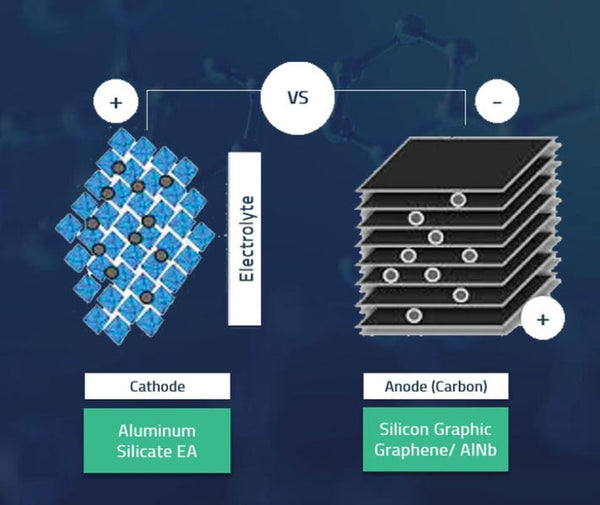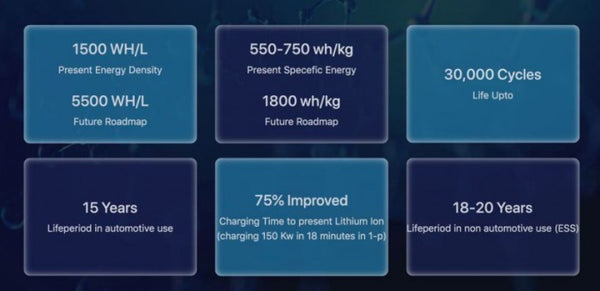It is understood that the energy density of aluminum-ion batteries is 1500Wh/L, which is expected to provide 600Wh/kg of energy. As a comparison, the energy density of lithium-ion batteries is 150~350Wh/kg, and the latest sodium ion developed by CATL is 70~200Wh/kg. Currently commonly used lithium iron phosphate batteries are generally around 140Wh/kg, and some ternary lithium batteries can exceed 200Wh/kg. This means that once the aluminum-ion solid-state battery is successfully commercialized, the battery life can be increased by at least three times.
According to Saturnose, a set of 15kW aluminum-ion solid-state batteries weighs 565kg, which can provide an electric vehicle with a battery life of 1200 kilometers, and support 20,000 cycles of charge and discharge, and can obtain a stable life of up to 15 years in the car. In addition, the production of aluminum-ion solid-state batteries does not use nickel and cobalt, and there are no lithium-ion dendrites and thermal runaway fire problems. The cathode of the battery system adopts a high-energy, disordered rock salt structure, and uses aluminum and niobium as well as solid electrolytes. It is said that aluminum-ion solid-state batteries are 50% cheaper than lithium-ion battery technology and are more advantageous in terms of energy density, lifespan, and safety.

With the transformation of the world's major car companies to electric vehicles, and the vigorous development of new energy industries in countries around the world, the supply of lithium batteries has been seriously in short supply. The price of various raw materials for the production of lithium batteries is soaring, and the price of materials such as lithium carbonate has increased by more than 230% this year. In the future, the demand for batteries from all walks of life will continue to increase. The current lithium-ion battery technology alone cannot meet the development needs of the industry.


